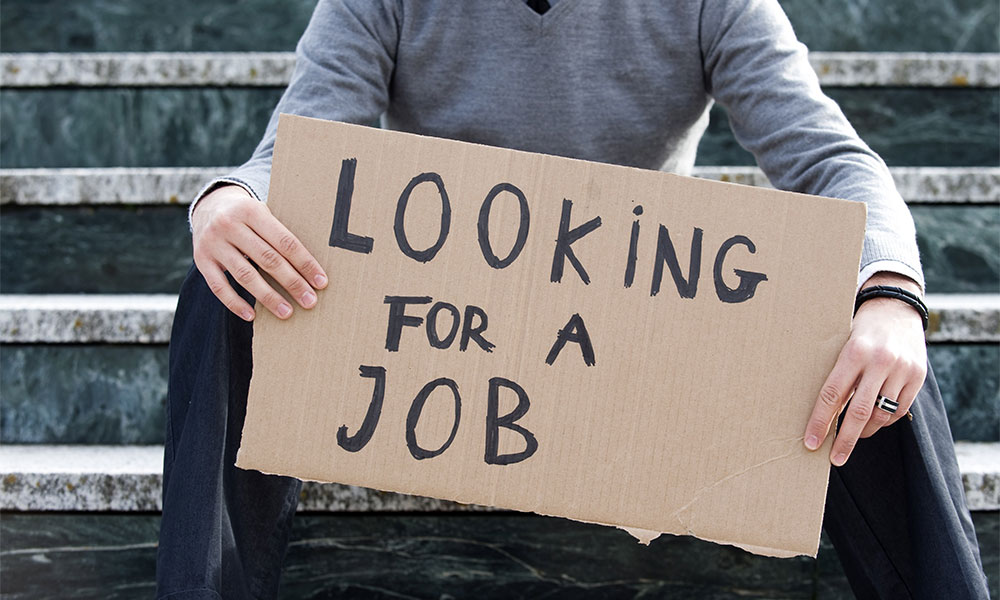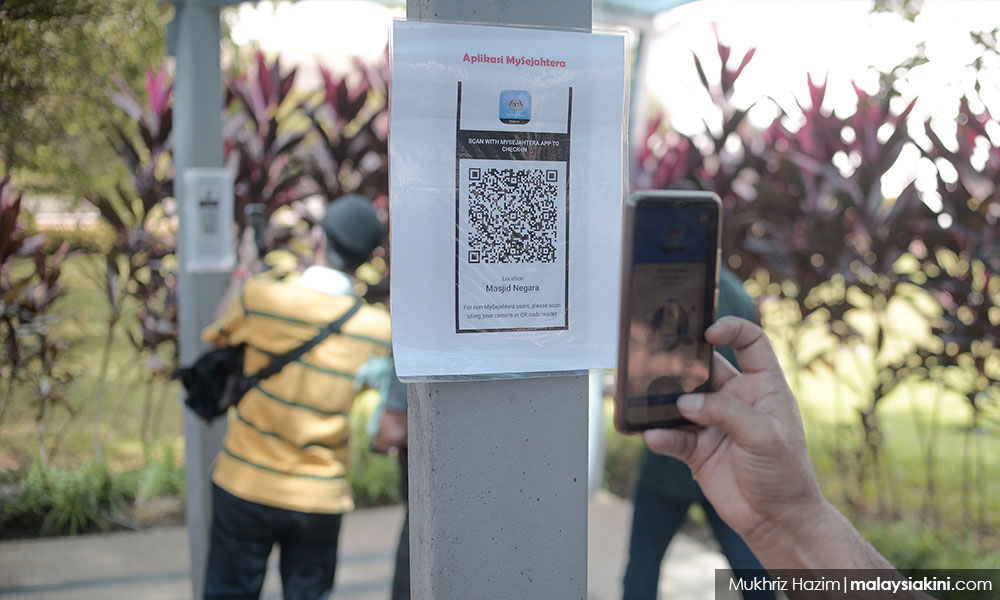MP SPEAKS | Since I made the offer for “pro bono” consultancy services yesterday, I have received calls from a brewery, a debt collection agency, a lawyer doing primarily property conveyancing and a part-time chilli farmer who works for an oil and gas company.
Although I have not received any calls or messages from the Prime Minister’s Office (PMO), I thought that I would ask the following 10 questions about his recently announced National Recovery Plan and at the same time provide some suggestions, also on a pro bono basis, to help answer some of these questions.
1. What ideas does the PM have in terms of raising revenue and improving the cash flow situation at the Finance Ministry?
One of the challenges faced by the Finance Ministry and perhaps more accurately, certain government agencies or statutory bodies, is the issue of cash flow during these challenging times.
As a former director of the National Higher Education Loan Corporation or better known as PTPTN, this statutory body relies on the Finance Ministry to fund its yearly interest payments on all of its outstanding loans and also repayments from students who have graduated already.
PTPTN focuses mostly on its cash flow and its cash flow has been severely affected since the start of first movement control order (MCO) with the suspension of repayments on its outstanding loans. One way in which this cash flow challenge can be addressed is to securitise part of the loan portfolio for students who are studying and who have graduated from Private Institutions of Higher Learning (or IPTS).
PTPTN can easily provide the data to show that the loan repayments from this group of students are reliable and predictable, two elements that financial institutions looking to securitise any loan portfolio are looking out for.
2. What about helping the hotel and tourism sector in more creative ways?
We all know that the hotel and tourism sector has been pummelled by this pandemic. Other than providing wage subsidies to the employers during the lockdown period, what other creative ways can we think of to assist those in this sector of the economy?
In the short term, some of them can be turned into vaccination centres (PPVs) and also temporary quarantine centres (for those who don’t want to go to the Malaysia Agro Exposition Park Serdang in Serdang and are willing to pay) to cover operating and salary costs.
For some hotels with golf courses and shopping malls, they have rooftops and idle land which can be turned into rooftop gardens and places where solar PVs can be installed. Some banks are already offering packages to fund solar PV installations. Can the government provide additional soft loans or grants for these kinds of initiatives that are targeted at the hotel and tourism sector?
3. What about setting up another improved version of Danaharta?
Those of us who lived through the Asian financial crisis at the end of the 1990s would remember the role Danaharta had to play in terms of taking away distressed assets from banks so that they could be properly recapitalised and start lending again to the private sector without the burden of large non-performing loans.
During this pandemic crisis, there are many companies with good quality assets that can be pledged as collateral so that these companies can borrow funds to cover their expenses while waiting for the economy to open up again. The challenge is that many banks are reluctant to lend, especially to some of the worse affected sectors such as retail, tourism and leisure and food and beverage.
Could the government step in by doing something similar where these assets can be temporarily acquired as collateral and then used to guarantee the loans of these companies to banks? Prokhas (formerly Danaharta) can be called once again to be the coordinating agency and Syarikat Jaminan Pembiayaan Perniagaan Berhad (SJPP) can be called to do the loan guarantees.
Once the pandemic is over and the cash flow of these businesses have returned to normal, their assets can be returned to them (for a small administrative fee to cover the expenses of Prokhas and SJPP).
Banks that take part in this scheme can also be asked to provide loan moratoriums to the companies that are pledging their collateral so that there is more targeted loan relief. (Hope that Bank Negara and the Finance Ministry will approve of this possible win-win solution.)

4. What about thinking more creatively to create jobs for the youth?
The issue of youth unemployment (three times that of regular unemployment) has been something that has been repeated many times by economists and policymakers.
I have a humble proposal to make here. Federal government agencies such as Malaysia Digital Economy Corporation (MDEC) and state agencies such as Selangor Information Technology & Digital Economy Corporation (Sidec) have made available various digitalisation grants especially to small and medium enterprises (SMEs).
But one of the main challenges is to reach out to these SME owners, many of whom are digitally challenged. Why not find a win-win solution by hiring recent graduates or recently unemployed youth who are digitally savvy to help “on board” many of these SMEs into the digital world?
It can be as simple as getting the local kuey teow or popiah seller to sign onto one of the food delivery platforms or helping a local restaurant do Facebook promotions and create Facebook posters using online software applications such as Canva.
These youth can then be our digital “frontliners” to help the SMEs (and they can also be vaccinated as part of their job requirement).
5. What about getting digital devices to the B40?
One of the major challenges with regard to learning from home during this pandemic is the need to buy additional digital devices for our children including laptops and handphones.
I recently got to know about a Malaysian IT company called Rentwise which, among other things, would take in old laptops and other digital devices, “clean them up” and then rent them out again including to the B40 community.
Rather than waiting for the Finance Ministry to finish procuring all of the 150,000 promised laptops/digital devices, why not ask corporations and other Malaysians to get involved in this endeavour by donating our old digital devices to companies such as Rentwise which can then rent out these devices to others including those from the B40 community?
The federal and state governments can also step in by offering tax deductions, both to individuals and companies who are donating, and to the companies who are receiving and then renting out these devices. And this can also be considered a sustainable initiative consistent with the United Nations Sustainable Development Goals (SDGs).
6. What about housing conditions for foreign workers?
With the outbreak of Covid-19 at many factories across the country, many factory owners have resorted to “forcing” their foreign workers to live onsite within the premises of the factories for fear that these workers may get infected if they are allowed to live outside on their own.
Technically speaking, workers are not supposed to live in the factory area. But given the circumstances, the government needs to be flexible and come up with new housing guidelines under the Housing and Local Government Ministry, together with the respective state government, so that onsite housing at the factories can be legally constructed.
I have spoken to a few companies that are able to provide this kind of “dorm” living arrangement and these accommodation arrangements can be set up and dismantled in a very short period of time. All the government needs to do is to provide updated guidelines so that accommodation can be built in industrial areas and still be in compliance with Act 446 (The Workers' Minimum Standards of Housing and Amenities Act (Amendment) 2019).
7. Can we think of new ways to open up indoor spaces?
One of the fears of reopening indoor spaces is the aerosol spread of the Covid-19 virus. One way for us to minimise this risk is to ensure that the air quality in these indoor spaces is constantly monitored and cleaned.
I was told that the Belgium government has recently mandated the use of CO2 monitoring in indoor spaces as a pre-requisite for indoor spaces to be opened.
We have a very vibrant and innovative Heating Ventilation and Air Conditioning (HVAC) sector in Malaysia headed by the Malaysian Air Conditioning and Refrigeration Association (Macra). I am sure that they would be able to provide updated inputs on how to ensure clean air quality through the installation of new air filters and air circulation devise so that these indoor spaces can be opened in a responsible and scientifically sound manner.
Indoor spaces in this case would include restaurants, gyms and banquet halls, for a start.
8. Can we use technology to safely reopen shopping malls?
In a related manner, we can also use technology to control and monitor the number of people in a mall using real-time monitoring via CCTVs and also tracking apps such as MySejahtera or apps which can be produced by individual shopping malls.

Once the limit of people (which is determined by the size and air circulation quality of the mall) has been reached, no other people can be allowed into the mall until someone leaves. Given that we are pushing for the adoption of I4.0 technologies including the Internet of Things (IOT), the government should take the lead in working out feasible solutions with the private sector using technology and innovations.
9. Can we think of ways to organise physical events using international SOPs?
This is a bit of a selfish question to answer since it is an area that is near and dear to me. There is no reason why small scale running events cannot be organised in a manner that is consistent with international standard operating procedures (SOPs).
The Youth and Sports Ministry can work together with race organisers to adopt a simplified version of the World Athletics Covid-19 Protection Procedures handbook which includes testing the athletes before the event and minimising interactions between the people involved in the organisation of such events.
I recently upgraded a 400m running track in my constituency in Bandar Baru Bangi Section 15 and I would be more than happy to work with the race organisers and the Youth and Sports Ministry to see how this can be done in a responsible manner after the end of Phase One of this lockdown.
10. What about setting up an ideas depository?
The ideas which I have proposed above are not rocket science. I have gotten some of these ideas from friends and others who have reached out to me.
I would humbly suggest that the PMO set up a “National Recovery Plan Ideas Bank” (similar to a food bank but for ideas) so that whoever thinks that he or she has a good idea to help reopen the economy in a responsible and safe manner can deposit the idea into this “bank”.
The PMO can then select a good idea every day and ask the relevant minister to interview the person who came up with the idea and see how to implement it in that ministry.
While waiting for the PMO to act on this, if you have any good ideas, please feel free to email me at im.ok.man@gmail.com. - Mkini
ONG KIAN MING is the DAP MP for Bangi and a former deputy minister of international trade and industry.
The views expressed here are those of the author/contributor and do not necessarily represent the views of MMKtT.




No comments:
Post a Comment
Note: Only a member of this blog may post a comment.